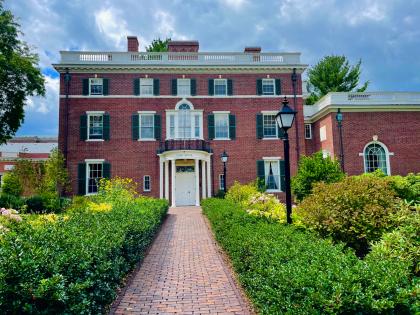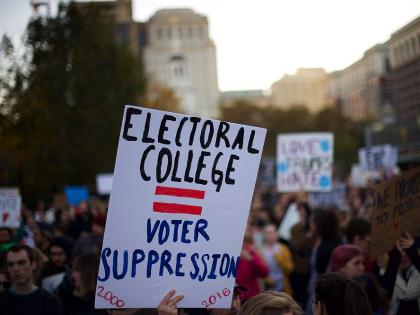Education is like a garden, explains Carol Strickland, a sixth-year student at the Graduate School of Education (GSE). "You can't plant a seed and expect it to grow," she says. "It needs the right soil, light, rain, and fertilizer." For her, and many other students, financial aid is the fertilizer—the mechanism that allows them to pursue an education in the first place. Strickland says she counts herself one of the lucky ones: her financial-aid package has been generous.
A combination of scholarships has covered the bulk of her tuition and fees during her six years in the Learning and Teaching Program, where her dissertation has focused on the conditions that motivate urban students to excel academically. But even with her package of fellowships, grants, teaching jobs, and other term-time employment, she still accrued more than $50,000 in federal loans while at GSE, which she will begin paying down once she completes her degree this fall. Many of the direct costs of her education have been covered, but she has had to pay for food, housing, medical expenses, clothing, books, and travel to her research site in New York City. When the rent on the cramped Cambridge "affordable housing" apartment where she has lived for 20 years went up again this year, to $1,158 a month, Strickland, 55, says she was forced to get a roommate to split the cost.
Strickland's case is hardly unique. From her seat on the GSE's financial-aid advisory committee, Norma V. Jimenez, Ed.D. '02, saw many of her fellow students suffering under massive debt loads. "Student debt is the number-one concern for our doctoral students," she says. Jimenez, 31, also speaks from direct experience: she graduated in June with $79,000 in debt despite financial aid that covered much of her tuition during the past seven years as she pursued her doctorate. Jimenez says she often worked 30 to 40 hours a week to pay for expenses, including the $1,100 monthly rent on a Harvard-owned apartment, travel to her research site in Los Angeles, food, and credit-card debt that she ran up to pay for an earlier master's degree.women say their financial circumstances upon leaving GSE make them question whether they will be able to pursue their chosen careers. "At the Law School, the Business School, or even the Medical School to a lesser extent, perhaps, you can take on debt knowing that a six-figure salary awaits you after graduation," Strickland says. "That's just not true at the Ed School," since teaching and nonprofit salaries range from $20,000 to about $50,000. Those numbers are daunting for Jimenez and her soon-to-be husband, Anthony Hernandez '00, who graduated with an M.Ed. in June: "We need to be very conscious of what we can do." Jimenez will be returning to her family home in Los Angeles to begin an administrative career at her alma mater, Concordia University. Strickland, for her part, worries about how she will have to use much of her income after graduation to repay her school loans, making it almost impossible to establish a retirement fund. With a tight laugh, she admits, "I have to say I'm a little concerned."






